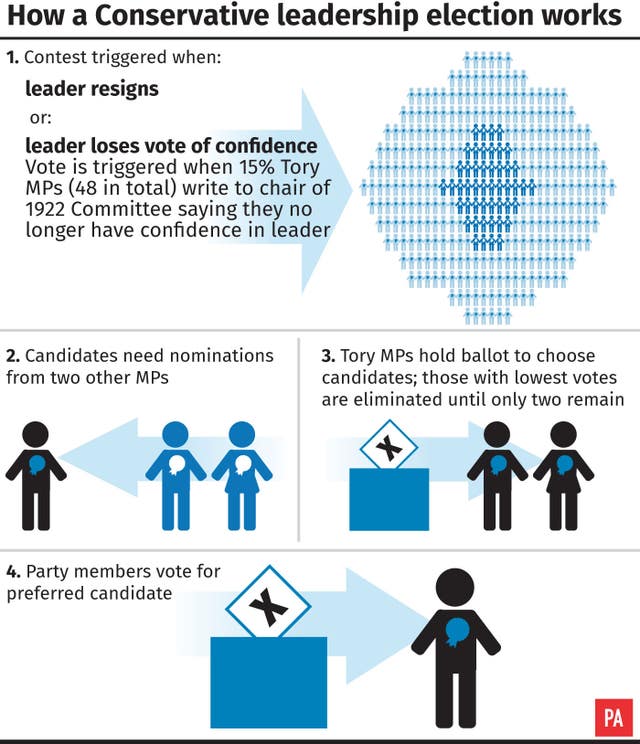Boris Johnson will face a vote of confidence by Tory MPs on Monday evening as discontent over the lockdown-busting parties in No 10 and the direction of the Prime Minister’s leadership reached a tipping point.
The Prime Minister was informed on Sunday that he would face the vote after Sir Graham Brady, the chairman of the backbench 1922 Committee, confirmed he had received the 54 letters from Conservative MPs needed to trigger the ballot.
The vote – by secret ballot – will take place at Westminster on Monday between 6pm and 8pm, with the count to take place immediately afterwards.
A steady stream of Tory MPs called publicly for the Prime Minister to stand down in the wake of Sue Gray’s report into breaches of the Covid regulations in No 10 and Whitehall.
But discontent goes far wider, covering the Prime Minister’s economic policies which have seen the tax burden reach the highest in 70 years, as well as his style of leadership.
– What is the 1922 Committee?
Also known as “the ’22″, the committee of all backbench Conservative MPs meets weekly when the House of Commons is sitting. When the party is in opposition, frontbenchers are allowed to attend, although the leader cannot.
When the party is in government and the leader attends, members are said to bang their desks in approval when the chief arrives.
– Where does the name come from?
The committee takes its name from a meeting of Conservative MPs on October 19 1922. The MPs successfully ended the party’s coalition with the Liberals, bringing down the government of David Lloyd George. The resulting general election was won by the Tories.
– Who is in charge?
The ’22 has an 18-member executive committee with a chairman, usually a senior MP, elected by committee members. The incumbent chairman is Sir Graham Brady, MP for Altrincham and Sale West, who was appointed in May 2010.
– What does it do?
The committee keeps the party informed of the backbenchers’ mood and opinion on party business. The chairman has considerable influence within the Parliamentary Conservative Party and oversees the election of a new leader.
A leader who loses the confidence of the ’22 is likely to find themselves in a precarious position as Cabinet ministers take the committee’s views seriously.

– What has it done?
In October 2003 Iain Duncan Smith was dumped as leader after he lost a confidence vote by 75 votes to 90.







